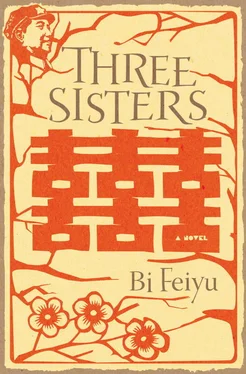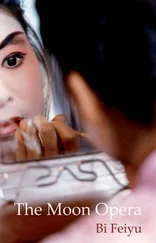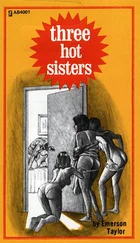“Yuxiu,” she said to her sister, “why don’t you invite Little Tang over to the house sometime?” That was, she felt, just the right thing to say, for it affirmed her status, as it was something only “Mrs. Guo” could legitimately say. Feeling extremely flattered, Little Tang smiled as she manipulated the melon seed in her mouth with her tongue, twisting her face out of shape.
On the way back home, Yumi realized why she’d been smelling melon seeds in the kitchen lately. That’s where they came from. And when they’re ready, she runs to bookkeeper Tang’s office to share them and talk some more. That is what’s been going on. Apparently, Yuxiu was like a black snow-boot cat, welcomed everywhere she showed up. Active and social, she’d put roots down all over the compound in a matter of days. If this kept up, what would she need a big sister for? How was Yumi going to control her? Extreme care was called for. Yumi began to worry, and was right to do so.
Yuxiu was spending time with Little Tang neither for the melon seeds nor for the conversation. No, she had other plans. She needed a skill, and that is precisely what she could learn from Aunty Little Tang. What she’d do once she’d mastered the abacus wasn’t clear, and only time would tell. But a skill, any skill, opened doors, and Yuxiu knew she had to plan for her future. Relying on Yumi was definitely not the answer, nor did it appeal to her.
She chose not to reveal her plan to Little Tang for fear that Yumi would find out about it and would not be supportive. Better to observe and learn on the sly. She knew she could do it. Her knitting skills had been formed the same way. She hadn’t taken any special lessons in the basic stitch, the knit and purl, the cross stitch, the V stitch, the spiral stitch, or the Albanian stitch. After quietly and covertly observing others, she had picked it all up with ease and then had produced finer knitting than anyone. She had a sharp mind and nimble fingers. But the abacus presented a special challenge. After Yuxiu spent several days observing, the clicking sounds came through clearly enough, but she could not quite figure out what was happening. Imagine her surprise when Little Tang brought up the subject on her own.
“Yuxiu,” she said one day, “why don’t I teach you how to have some fun with an abacus?”
That was totally unexpected, and Yuxiu blurted out, “I’m too dumb to learn something like that, don’t you think? Besides, what good would it do me?”
Little Tang smiled. “It’ll be a nice diversion for me,” she said. And so it began.
Not wanting to be too ambitious, Yuxiu said she’d worry about addition and subtraction first. She asked Little Tang to leave multiplication and division for another time since she didn’t know how to do them even on paper.
Little Tang told her not to worry, that adding and subtracting were all that she needed. She didn’t know how to divide either and had never found any need to learn. She said that adding a little here and taking away a little there was, in a nutshell, what bookkeeping was all about. That comment told Yuxiu that Little Tang likely knew what Yuxiu had in mind. Since the bookkeeper didn’t bring it up, Yuxiu knew she’d better not either.
Yuxiu was a quick study, but this was actually not her first contact with an abacus. Her third grade math teacher had introduced the class to a large model abacus that hung from the blackboard with the beads tied with string to keep them in place. But Yuxiu had lost interest after the first lesson and had spent the rest of the time in whispered conversations with the other students. Having a clear goal is the only way to learn something, Yuxiu was thinking. That’s what makes it interesting.
Little Tang discovered that Yuxiu was not only smart, but she had a first-rate memory as well; she soaked up knowledge and it stuck. The complicated rhyming words for the abacus were a case in point: Yuxiu had them memorized within days, much faster than Little Tang had been able to do.
“I have a good teacher,” Yuxiu said in response to Little Tang’s praise. Any teacher lucky enough to have a bright apprentice often displays more enthusiasm than the apprentice. Little Tang expected Yuxiu to come by every day, and when she didn’t, she let her disappointment show.
From the beginning, the master-apprentice relationship was secondary to the friendship. Little Tang began inviting Yuxiu to her home near the government-run rice mill. On her first visit, as they entered the mill compound, Yuxiu saw a sheet-metal smokestack attached to a generator room; it was, she discovered, the source of a sound she had been hearing every night. Each cloud of steam that belched from the smokestack made a distinctive popping sound. Little Tang showed Yuxiu around her house with obvious delight, especially the bedroom, where she proudly pointed out her Red Lantern transistor radio, her Butterfly sewing machine, and her Three Fives alarm clock, [5] A brand of alarm clocks that refers to a somewhat obscure slogan from the 1950s.
all highly prized, Shanghai-produced status symbols that designated their owners as well-off. They meant nothing to Yuxiu, who could not tell good products from bad. Trying to enlighten her was like talking to a brick wall, but none of that lessened Little Tang’s enthusiasm.
For their conversations, Little Tang and Yuxiu preferred the bedroom over the living room. They’d sit on the bed and talk quietly about nothing in particular, and Yuxiu was struck by how quickly their friendship had blossomed. Despite the difference in ages, they were soon more than casual friends. Little Tang even revealed some shortcomings of her husband and her child to Yuxiu, who, sensible girl that she was, defended them against Little Tang’s criticisms with quick words of praise. That, of course, delighted Little Tang. “Ai,” she’d sigh fretfully, “you don’t know what they’re like.” It was a meaningless comment since Yuxiu had not met either of them.
But then one day Yuxiu met Little Tang’s son and she could hardly believe her eyes. He was a head taller than she and muscular, yet possessed a shy nature that belied his appearance. Since Little Tang had always referred to him as Little Wei, Yuxiu had expected to see a middle school student. In fact, he worked in the rice mill and was a core member of the local militia. Little Tang called him over using his full name—Gao Wei—and introduced him to her guest: “This is Yuxiu.”
At that moment she no longer sounded like Little Tang the government clerk but spoke with the propriety and authority of a mother. Then she reverted to her normal tone as she said to Yuxiu, “This is my slow-witted son.” The immediate change in tone put Yuxiu out of sorts since it seemed to imply that she and Little Tang were of the same generation, the one ahead of Gao Wei. Quickly recovering from her discomfort, Yuxiu said, “You shouldn’t say that, Aunty. He doesn’t look slow-witted to me.”
Taking that as a cue, Little Tang turned to her son. “Yuxiu has been saying all sorts of nice things about you, Little Wei.”
By calling attention to what was best left unsaid, Little Tang had Yuxiu looking for a hole to crawl into. Obviously uncomfortable around girls, Gao Wei was ill at ease; he blushed but didn’t dare walk away. Yuxiu’s face also reddened, and the thought struck her that Little Tang was a different person at work than she was at home, where she ran the house in all affairs, big and small. No wonder the boy was the way he was. Yuxiu now saw her friend in a different light.
While it could be said that Little Tang was a capable, resourceful worker—although her motives were not always transparent—it was clear to Yuxiu that Gao Wei’s mother had plans for the two youngsters. Yuxiu had thought that she was being clever by secretly learning how to use an abacus from Little Tang, all the while Little Tang was throwing her net far wider and luring Yuxiu into it. It was Yuxiu who had fallen into a trap, not Little Tang. That’s what living in town can do for you, Yuxiu thought admiringly.
Читать дальше











